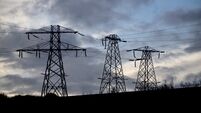Inflation returns to stalk Ireland like it's the 1970s

Economist Jim Power: Phenomenal price increases will have a very profound impact on Irish consumers over the coming months.
I vaguely remember when in the 1970s and most of the 1980s inflation was a thing. Over the past couple of decades in marked contrast, the phenomenon of rapidly rising prices has not attracted much attention and in fact central bankers have been more concerned about the lack of rather than the existence of the phenomenon. Over the past few months all has changed utterly.
To me, it does seem a little surreal to see the topic featuring in the news headlines once again. The CSO last week data showed the annual rate of price increase had jumped to 5.3% in November, which is the highest rate since June 2001. Most of the price pressures are emanating from two old reliables: The housing market and energy prices.















